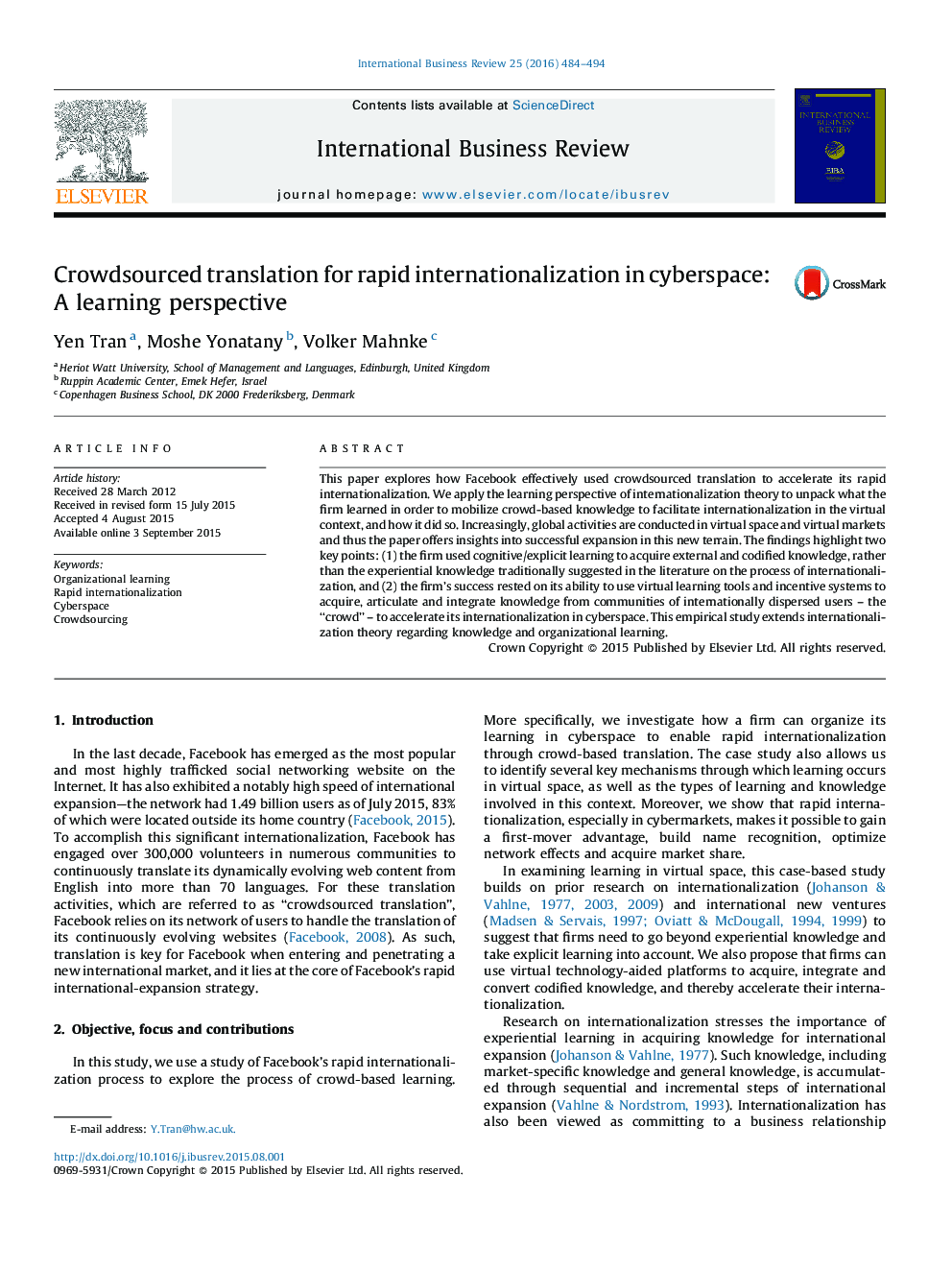| Article ID | Journal | Published Year | Pages | File Type |
|---|---|---|---|---|
| 1000247 | International Business Review | 2016 | 11 Pages |
•Crowd sourced translation is used to accelerate internationalization in cyberspace.•The firm designs virtual learning tools and incentive systems to acquire, articulate and integrate knowledge from communities of internationally dispersed users – the “crowd” – to accelerate its internationalization in cyberspace.•To accelerate internationalization in cyberspace, the firm used cognitive/explicit learning to acquire external and codified knowledge, rather than the experiential knowledge traditionally suggested in the literature on the process of internationalization.
This paper explores how Facebook effectively used crowdsourced translation to accelerate its rapid internationalization. We apply the learning perspective of internationalization theory to unpack what the firm learned in order to mobilize crowd-based knowledge to facilitate internationalization in the virtual context, and how it did so. Increasingly, global activities are conducted in virtual space and virtual markets and thus the paper offers insights into successful expansion in this new terrain. The findings highlight two key points: (1) the firm used cognitive/explicit learning to acquire external and codified knowledge, rather than the experiential knowledge traditionally suggested in the literature on the process of internationalization, and (2) the firm's success rested on its ability to use virtual learning tools and incentive systems to acquire, articulate and integrate knowledge from communities of internationally dispersed users – the “crowd” – to accelerate its internationalization in cyberspace. This empirical study extends internationalization theory regarding knowledge and organizational learning.
